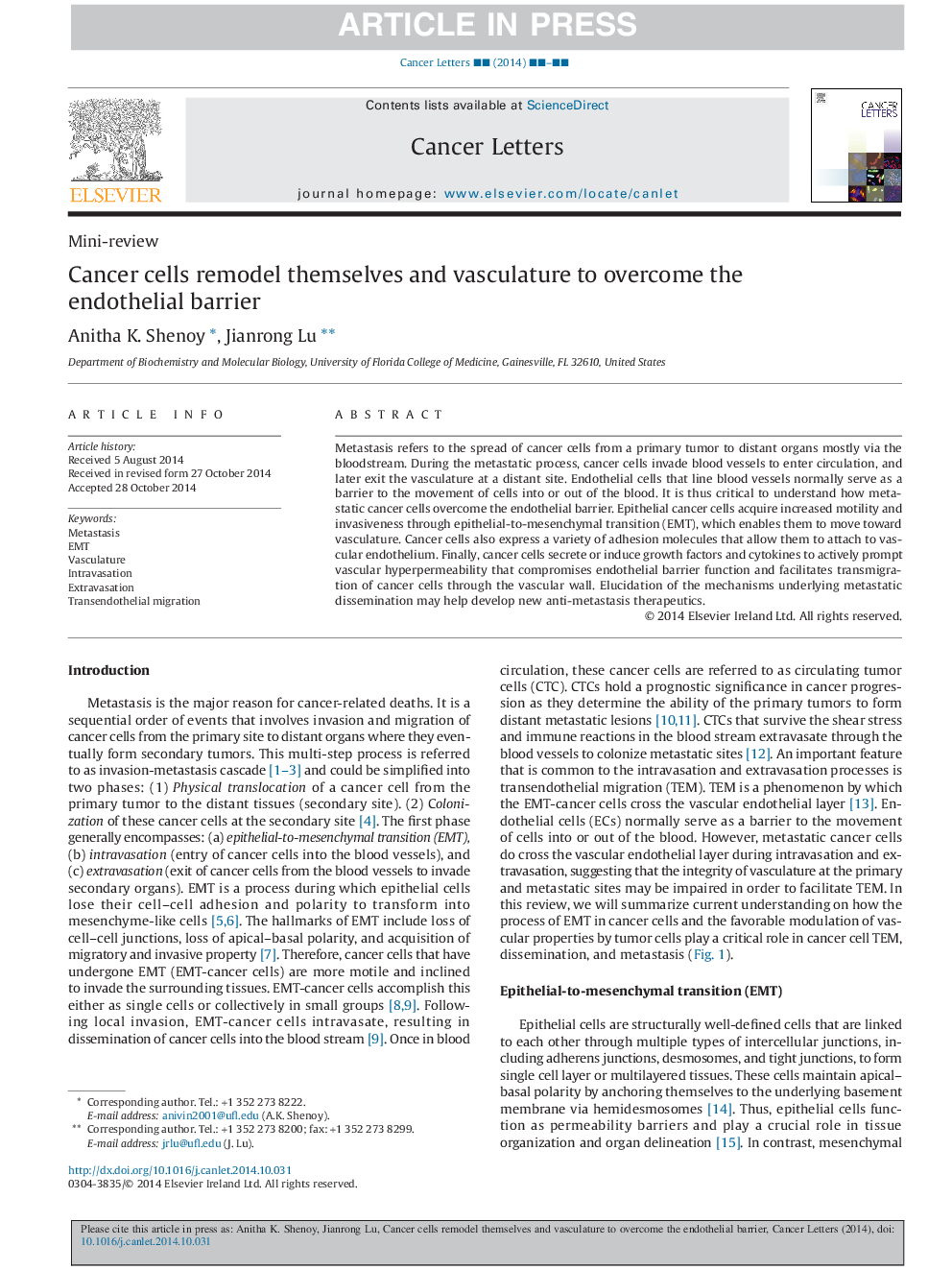| Article ID | Journal | Published Year | Pages | File Type |
|---|---|---|---|---|
| 8435305 | Cancer Letters | 2016 | 11 Pages |
Abstract
Metastasis refers to the spread of cancer cells from a primary tumor to distant organs mostly via the bloodstream. During the metastatic process, cancer cells invade blood vessels to enter circulation, and later exit the vasculature at a distant site. Endothelial cells that line blood vessels normally serve as a barrier to the movement of cells into or out of the blood. It is thus critical to understand how metastatic cancer cells overcome the endothelial barrier. Epithelial cancer cells acquire increased motility and invasiveness through epithelial-to-mesenchymal transition (EMT), which enables them to move toward vasculature. Cancer cells also express a variety of adhesion molecules that allow them to attach to vascular endothelium. Finally, cancer cells secrete or induce growth factors and cytokines to actively prompt vascular hyperpermeability that compromises endothelial barrier function and facilitates transmigration of cancer cells through the vascular wall. Elucidation of the mechanisms underlying metastatic dissemination may help develop new anti-metastasis therapeutics.
Related Topics
Life Sciences
Biochemistry, Genetics and Molecular Biology
Cancer Research
Authors
Anitha K. Shenoy, Jianrong Lu,
